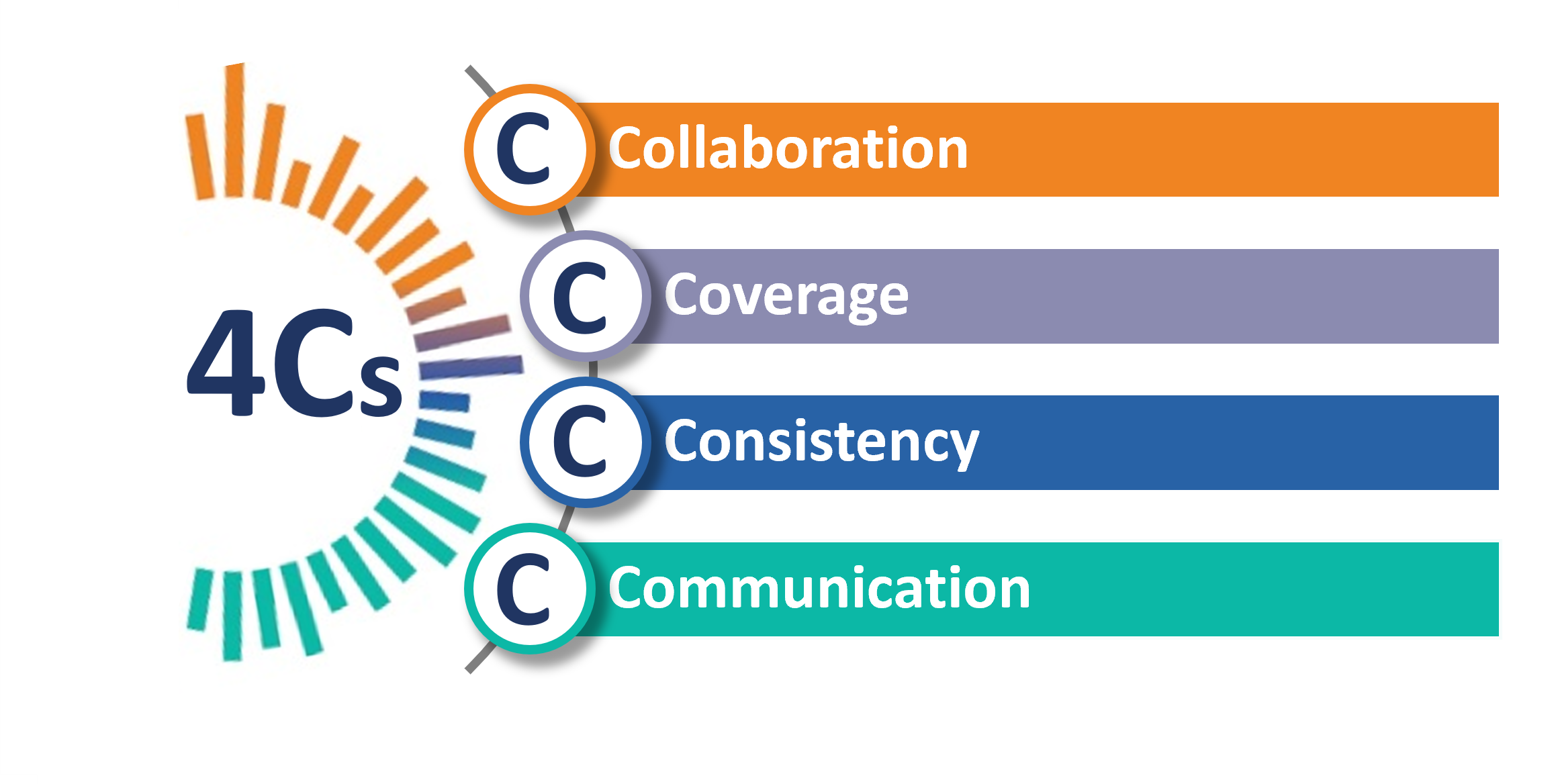Our approach
The Office of the Independent Implementation Supervisor (OIIS) uses several approaches to monitor and report on the progress of implementation of DFSV and criminal justice sector reforms.
These approaches examine progress of individual recommendations due for completion, and looking at implementation through a system-wide lens to examine collective progress and achievements more broadly.
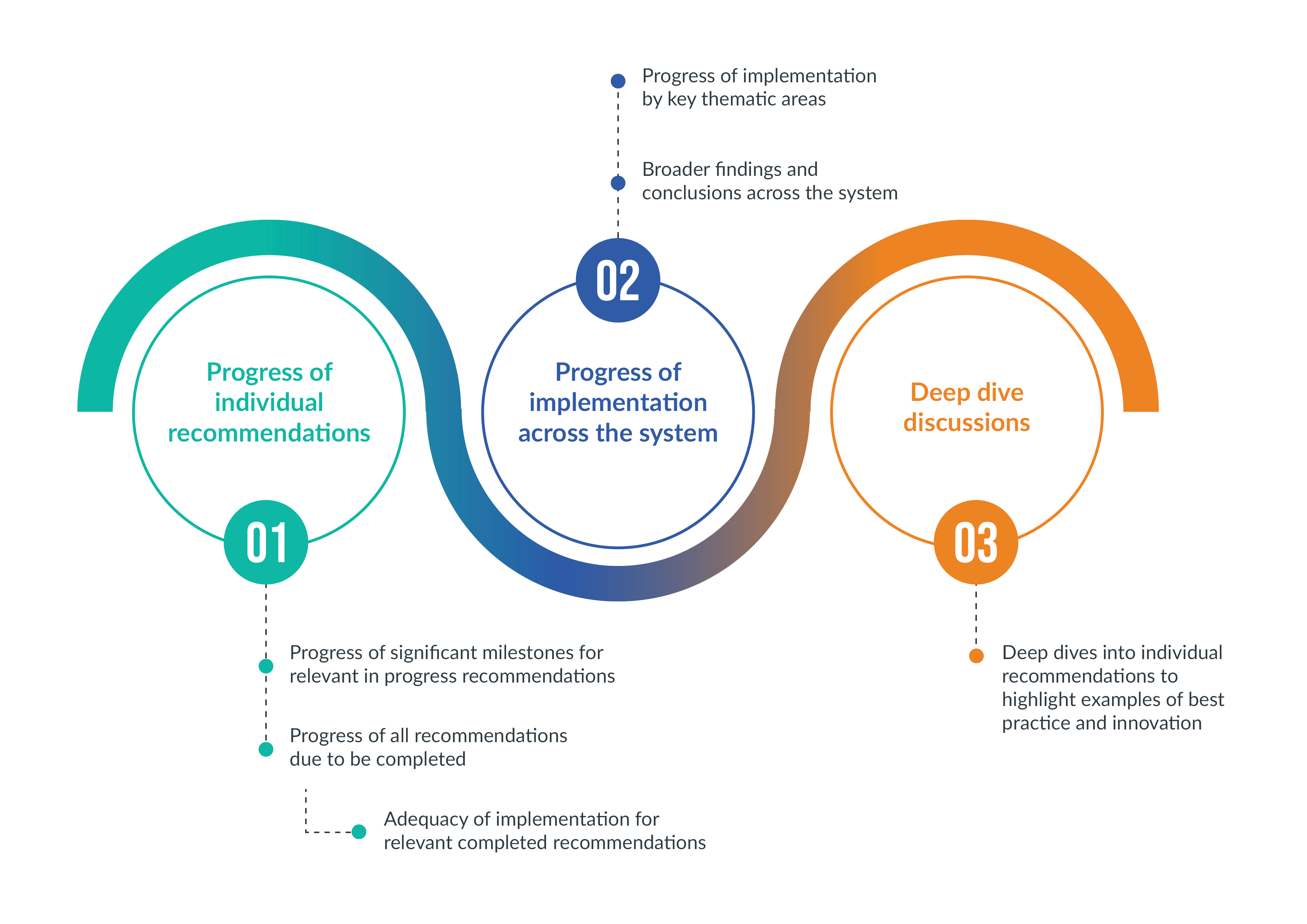
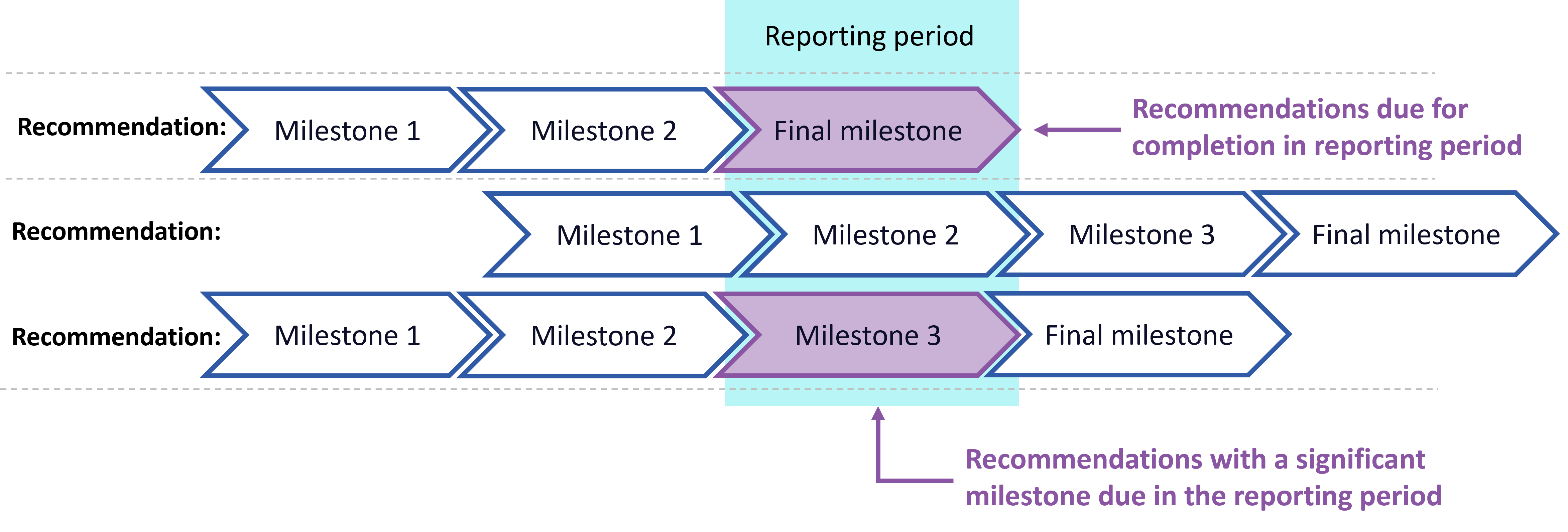
In each reporting period, the Independent Implementation Supervisor (IIS) assesses the progress of recommendations due to be completed in full, as well as interim milestones that are considered 'significant', meaning they are foundational to the implementation of the reform program or to creating tangible changes on the ground.
Individual recommendations due to be completed in full are reported as:
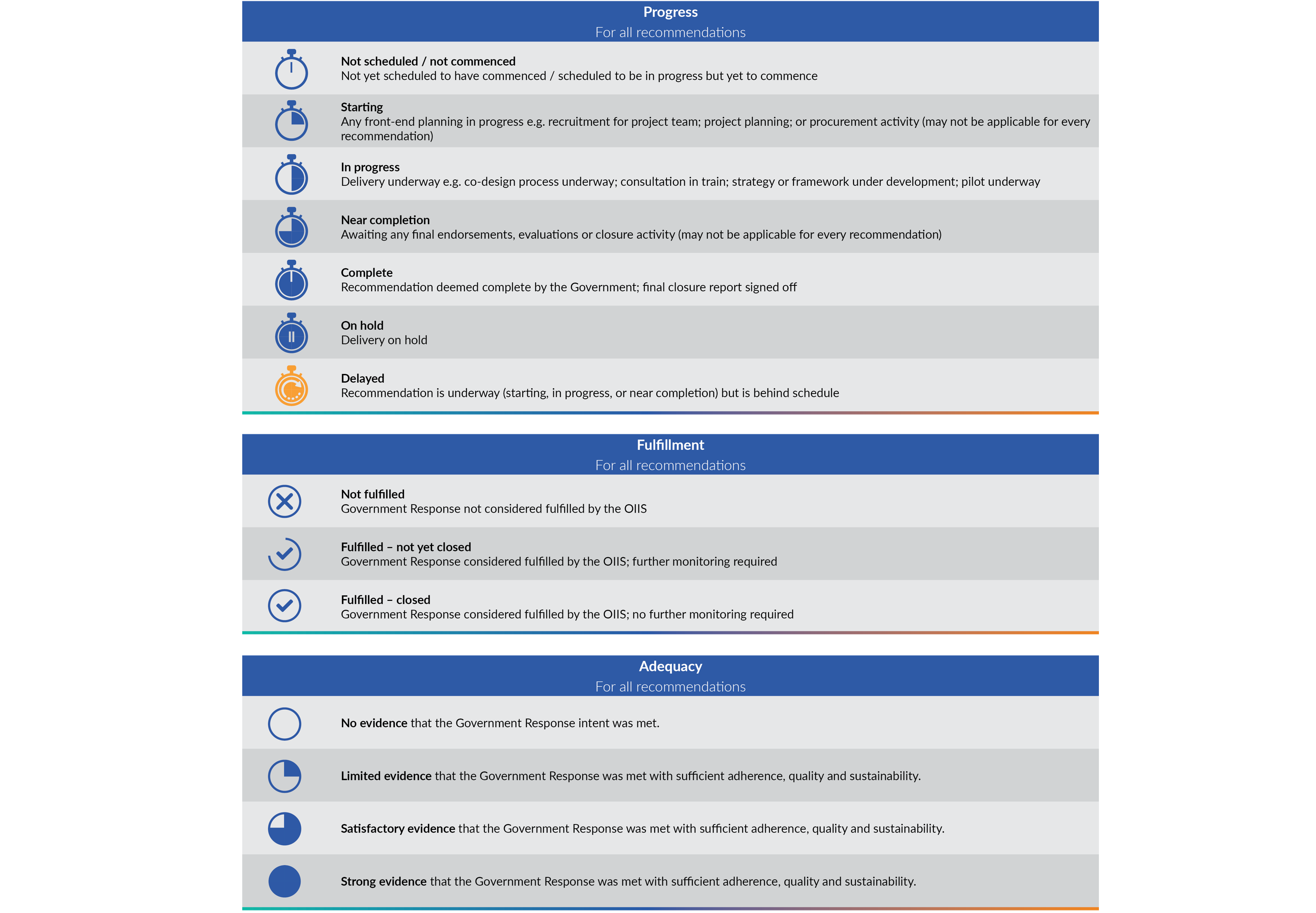
The IIS also monitors progress achieved across the system. This involves examining implementation through different lenses to understand, at a high level, where progress or delays have been observed across the system and identify areas of collective impact.
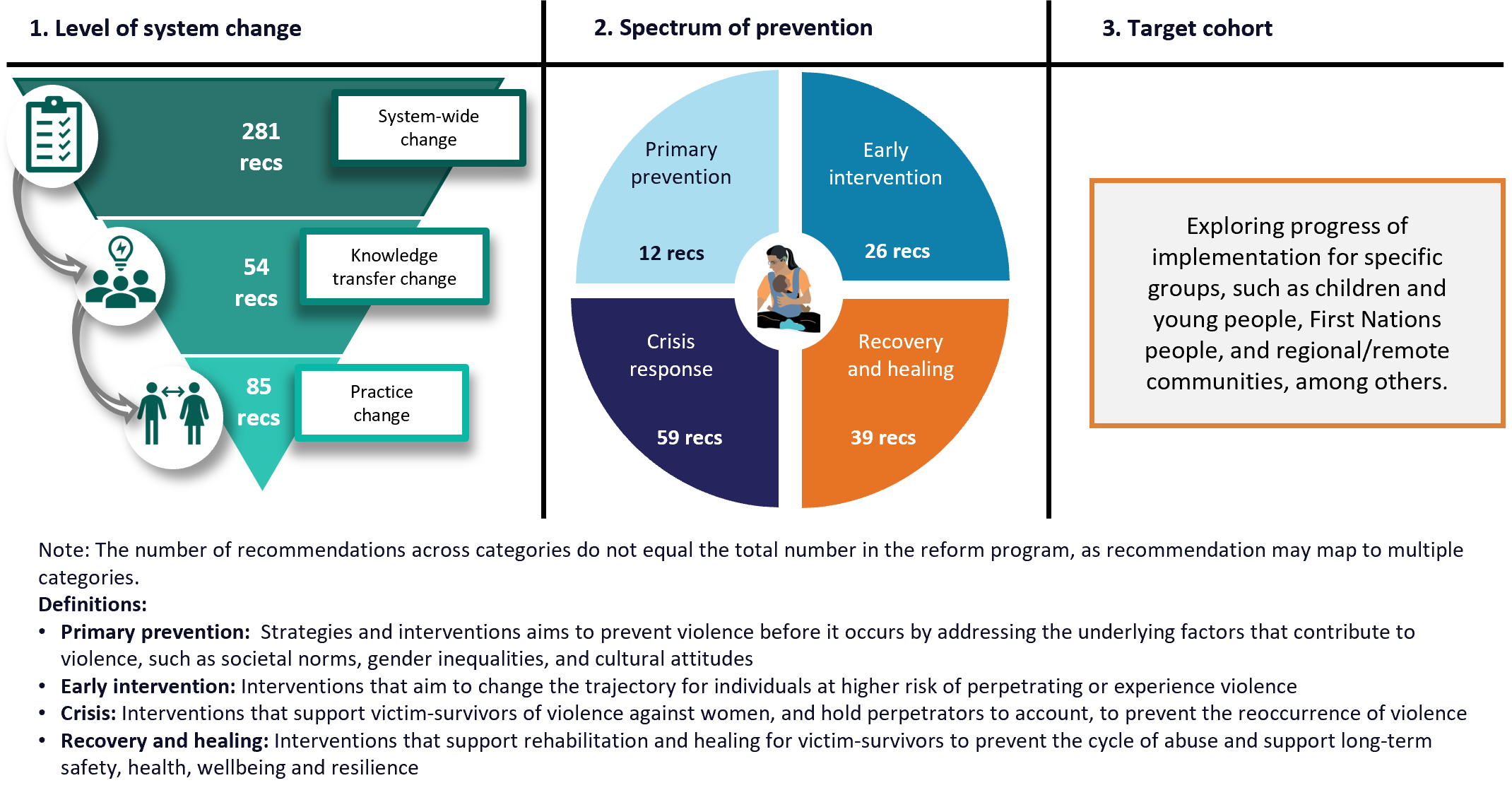
Several common themes emerged across progress reports, which provide insight into improving implementation. These form the '4Cs of implementation' and are often discussed when considering the concept of trust.
